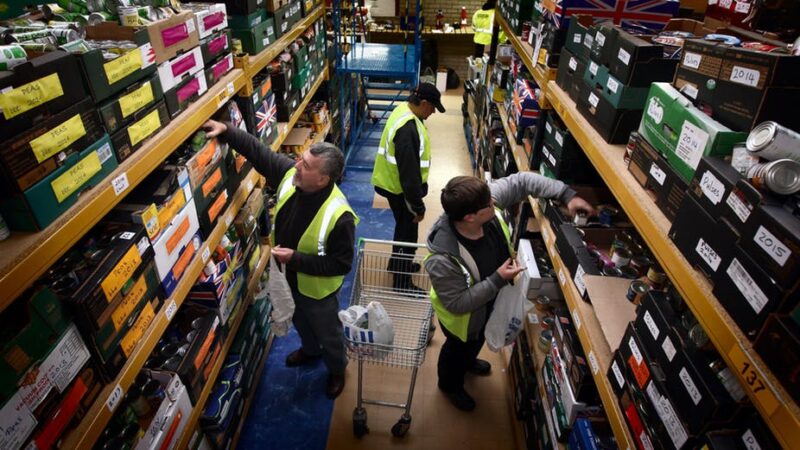The market alone can't solve food poverty.

The figures are bleak: more than 1.2 million emergency food parcels were given out by food banks in the Trussell Trust’s UK-wide network between April and September this year, and around 1 million more children have had to sign up for free school meals during this pandemic.
With soaring foodbank use and families and children going hungry, Marcus Rashford has shone an important light on food poverty and insecurity in the UK, and his new BBC documentary highlights these issues.
Supermarkets have proved to be doing so well that they have been able to both give back business rates that were suspended for them by the Government and pay out generous dividends to their shareholders, while farmers and suppliers further down the food chain have felt the pressure.
What’s more, the Government’s food guru, Leon founder Henry Dimbleby, tells us in his work on the National Food Strategy that it isn’t just ensuring accessibility to food on which we are failing in this country – we have a nation-wide obesity crisis alongside high levels of food waste, and a farming system that damages the environment.
His warning is stark: our current food system is causing environmental destruction and is making us sick.
It is, therefore, a system in crisis. And yet, superficially, we’ve never had it so good. We have the third cheapest food in the world, plenty of choice for many, and a system that was resilient and flexible enough to withstand the challenge of Covid. We were right to thank everyone in the food chain from farmer to shop-worker when the system withstood the huge shocks of early 2020.
When two such very different pictures can be painted of our food system, it raises the question – can both be correct? Can our food system be so apparently efficient, but also so destructive? Why can it deliver quality and choice to so many, while leaving so many others without?
The reality is that both are true, and that is the conundrum that Labour will seek to untangle as we develop our food policy in the months ahead. Because if there is one clear lesson from the extraordinary events of 2020, it is that in a crisis, the key role of government in a civilised society became crystal clear.
When the pandemic struck, there was no market-based solution for supporting otherwise successful businesses – it needed government to step in and provide the collective support that society needed.
Henry Dimbleby’s analysis of the issues facing the food system in this country will be a useful starting point for us. His interim conclusions have already helped force the Government into some of the short-term actions rightly demanded by campaigners like Marcus Rashford to support those struggling to access food in these difficult times. Ensuring free school meals through holiday periods and extending holiday activity and food programmes are a welcome beginning, but are only a start.
The much bigger question is around how we are going to reform the UK’s food system into one that delivers tasty, nutritional food in an equitable way, for the least environmental harm. It is a simple question, but not one that the current system is designed to answer. And it matters hugely – to all of us. With lorries queuing at Dover, our dependence upon long-supply chains makes it even more pressing that we produce more of our own fresh fruit and vegetables, as we are quite capable of doing.
Transforming today’s superficially highly efficient system into one that delivers food we all want to eat, while recognising diversity, at affordable prices, in a healthy way, with minimal waste and a fair return for everyone involved in the system is a challenge.
Leaving it to the market – the Conservative answer – simply isn’t good enough. It is up to Labour to show that we can do better.
Daniel Zeichner is Shadow Minister for Environment, Food and Rural Affairs.
To reach hundreds of thousands of new readers we need to grow our donor base substantially.
That's why in 2024, we are seeking to generate 150 additional regular donors to support Left Foot Forward's work.
We still need another 117 people to donate to hit the target. You can help. Donate today.



